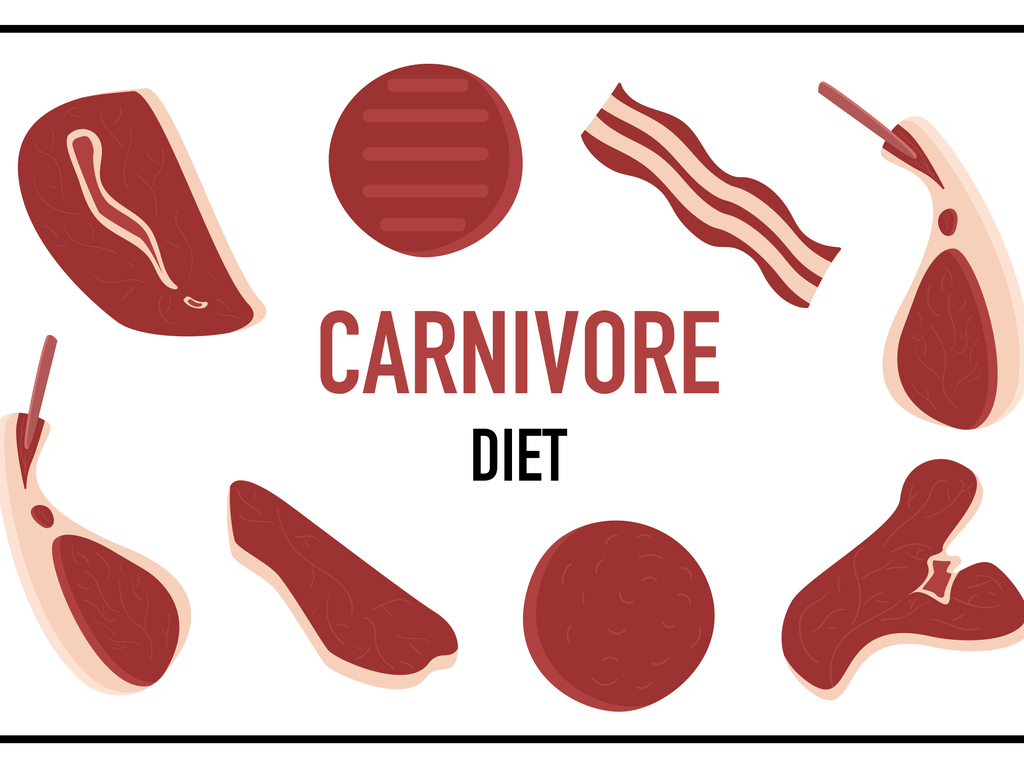If you’ve taken even a passing interest in current diet trends, you’ve probably heard of the Carnivore Diet. It’s a diet that’s all about meat – we’re talking breakfast, lunch, and dinner. I can already hear the vegetarians gasping.
The What, Why, and How of the Carnivore Diet
The Carnivore Diet, also hilariously referred to as the ‘Zero Carb Diet,’ is as simple as it sounds. You eat meat, and then you eat some more meat. A slight exaggeration perhaps, but essentially, your plate on this diet is an homage to all things animal-based.
But why subject yourself to a diet that makes a T-Rex look like a picky eater? Well, advocates of the carnivore diet believe it can lead to weight loss, improved athletic performance, and even alleviate symptoms of some health issues. That said, there are some caveats we’ll dive into later. So, loosen up that steak knife hand, we’re delving into the meaty depths of the Carnivore Diet.
Making the Carnivore Diet Work for You
This diet isn’t just meat, meat, and more meat. Well, okay, it largely is, but there are nuances. For example, you’ll be prioritizing fatty, nutrient-dense meats over lean ones. Chicken breast? Toss it. Go for rib-eye. You might also throw in a few animal products like cheese and eggs.
It’s not uncommon for new carnivores to start believing they’ve become werewolves. You haven’t. It’s just that the goal is to reach a state of ketosis. That means your body is burning fat for fuel instead of carbs, resulting in weight loss. The trick is keeping carbs low, proteins moderate, and fats high. There’s more science to it but I’ll spare you the dietary lecture.
But What About Deficiencies?
Ah, the burning question, brighter than a grilling steak! And a valid concern. After all, your elementary school teacher probably ingrained in your head that a balanced diet involves an array of colorful foods. Not so much the case with the carnivore diet. However, proponents argue that a human really can get every necessary nutrient from animal products alone. Case in point: vitamin C (which, by the way, is plentiful in liver… if you dare).
The Risks of the Carnivore Diet
No reward without risk, right? Surely, ignoring every food item at the supermarket apart from the butcher section might raise a few health alarms. Critics of the diet argue that overlooking fiber can lead to digestive issues and ignoring fruits and veggies can increase chances of nutritional deficiencies. Plus, as with any diet, diving into a plate of bacon without checking with your doctor first isn’t always the best course of action.
The Carnivore Diet vs. Other Diets
I’d bet my steak knife you’re wondering how the carnivore diet stacks up against other trendy diets. You’ve probably heard of keto, paleo, and Atkins, diets that also encourage low carb intake. But the carnivore diet takes it to another level. It’s like the unapologetic elder sibling who takes from the others but is still wholly its own. The focus on animal products is a stark contrast to plant-focused diets like veganism or vegetarianism.
To Carnivore or Not to Carnivore?
So, is this the diet for you? It’s not for the faint-hearted, that’s for sure. It’s also not a magic fat-melting spell. But for those who aren’t scared to venture into the caveman realm and aren’t big on variety (or vegetables), the Carnivore Diet is worth investigating. Just be sure to focus on quality meats and do your research, or get advice from health professionals before taking the meaty plunge.
Oh, and if you do decide to go full Carnivore, give peas a chance…to be avoided. I’m sorry, veggies. It’s not you; it’s the Carnivore diet.
